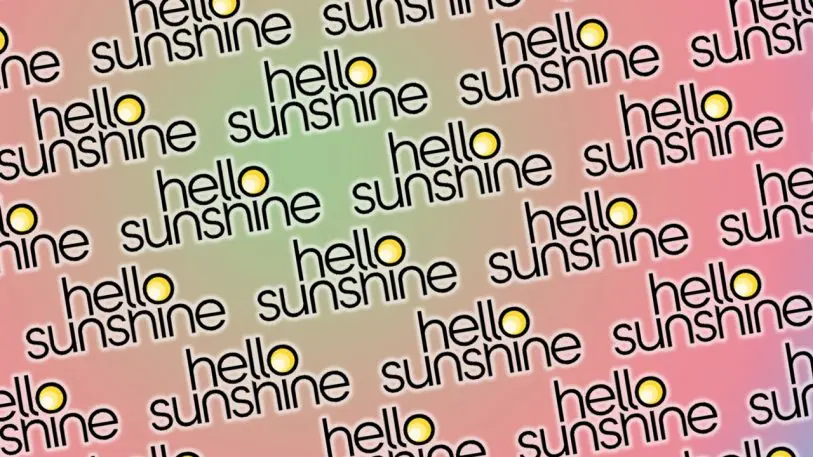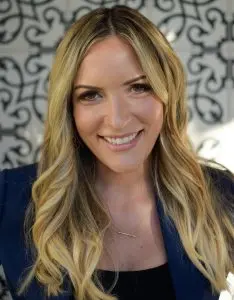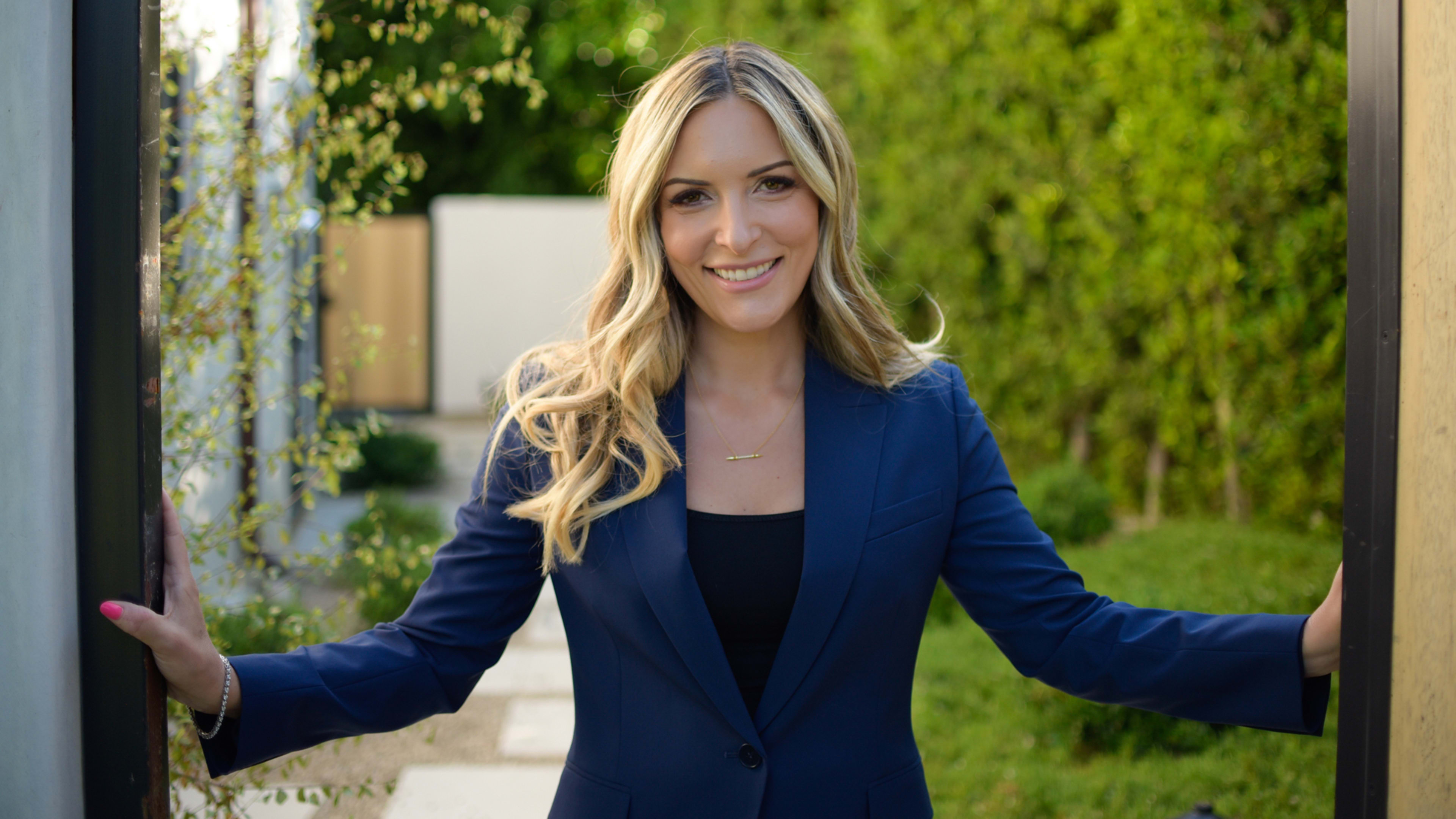In early 2016, Eve Rodsky, a Harvard-educated lawyer who works as an organizational management specialist overseeing philanthropy funds at Fortune 500 companies, got a text from her husband telling her that a drunk man had left a jacket and a broken bottle on the front lawn of the couple’s Los Angeles home. Rodsky had recently gone back to work after having their third child and was on a work trip to Seattle, where she found herself pumping milk “in one of those weird pods” at the airport.
When Rodsky returned to L.A. that evening, the items were still on the front lawn. “So I thought, okay, maybe my husband’s dead or there’s some other reason why those things would still be there,” she said jokingly in a recent interview with Fast Company.
But no. Her husband was upstairs watching Sports Center. He’d had time to fit in a workout, and the couple’s nanny had helped put the kids to bed.
Rather than confront him or explode, Rodsky decided to approach the situation with the same calm methodology she used in her work. She put on a pair of plastic gloves and picked up the items herself. She noted that the exercise took her 12 minutes.
“So the last 12 minutes of my day were in the service of our household, whereas his last four hours were in service of him,” she said. “I came to the conclusion that men, women, and society view men’s time as finite and women’s as infinite.”
This realization led Rodsky to embark on what she calls a “quest” to “create a system for domestic rebalance.” After interviewing 500 men and women, Rodsky came up with a system that applies to culture at home the same principles she uses consulting CEOs at billion-dollar corporations. This approach is at the heart of her upcoming book, Fair Play: The 5 New Rules to Revolutionize Your Marriage, Home and Sense of Purpose–a book that is being backed by one of Hollywood’s most ardent readers, Reese Witherspoon.
Fair Play is a self-help manual with a focus on the solution (as opposed to the problem) to why domestic partners have so much trouble communicating and allocating labor fairly. Rather than divide work equally between men and women, a theory that was popularized in the early 1990s through groundbreaking books like The Second Shift, Rodsky argues that it’s not so much about spreading responsibility around equally as owning the responsibility that you do have. Her gamified system uses “cards” to represent the dozens of household chores and responsibilities that constitute all of the “invisible” work that goes into running a home. She instructs readers to deal those cards out between domestic partners who each have to oversee the “CPE”–conceiving, planning, and execution–of each card. In other words, if one of your cards is pet care, don’t be texting your spouse about picking up cat food. It doesn’t matter how many cards each person has, and the cards can be re-dealt over time. What matters is taking full ownership of the ones currently in your pile.
Told in a witty, talk to me, girl tone, Fair Play reads like a companion piece to Marie Kondo’s self-help sensation, The Life-Changing Magic of Tidying Up, similarly arguing that by following a set of easy-to-follow rules, the reader will open themselves up to newfound marital and household bliss.

This means tapping into Hello Sunshine’s many channels–video, social media, podcasts, Witherspoon’s book club, live events–to “bring this book into the cultural conversation,” Harden said.
This is no small claim for a company that is emerging as a successor to Oprah when it comes to minting personalities and being a cultural arbiter for women, particularly in the literary space. Witherspoon’s Instagram-based book club, where she recommends a new title every month, often via videos that feature the actress bedazzled with Instagram stickers like cat ears or whiskers, has amassed nearly 1 million followers. Besides being an online fan depot, it’s also a launch pad for book-to-screen adaptations, such as the upcoming Hulu limited series based on Celeste Ng’s novel Little Fires Everywhere (which Witherspoon and Kerry Washington are starring in and producing). And it has helped propel books to The New York Times Best Seller list and beyond. Last summer, after Witherspoon blessed Chanel Cleeton’s romance novel Next Year in Havana, Cleeton was approached by Frolic, a multimedia company that specializes in romance, to buy the film rights. Recently it was announced that Witherspoon is adapting another one of her picks, Delia Owens’s Where the Crawdads Sing, into a film at Fox 2000.
Putnam is well aware of Hello Sunshine’s influence and reach. The publisher’s executive editor Michelle Howry said that “the partnership between Eve and Hello Sunshine offers us a direct line to the very women, and men, who are hungry for this message.”
But Hello Sunshine has never applied its 360-media approach to a property this early on. The company helped Rodsky select a book agent, Yfat Reiss Gendell of Foundry Literary + Media, and gave her input on the proposal. Nor has the company been this aggressive. Harden called the book, whose manuscript is not yet complete, “a huge priority for us as a company in 2019.”
“It’s all consistent with our mission,” she said. “Which is: How do we highlight and elevate unique and original women’s voices?”

A spreadsheet that went viral
After timing herself picking up trash from the lawn, Rodsky decided to start a spreadsheet. She called it “Shit I Do” and it broke down by all of the chores and responsibilities that she did at home and as a mother. The idea was to “value the invisible,” i.e., to commoditize things like folding laundry and shopping for groceries in order to lay out exactly how much actual work went into running a household.
“It turned into 98 tabs with 10 sub tabs,” Rodsky said. “So under ‘pet care’ there would be ‘find the appropriate vacuum’ [to vacuum up fur]. It was over 1,000 items of invisible work.”
She shared the list on Facebook, where friends began chiming in and sharing it with their friends and groups, to the point that, according to Rodksy, it “sort of went viral.”
Soon, she was getting emails and Facebook messages from strangers. “They’d say, ‘I’m sitting with a woman and her husband’s mad at her because she didn’t get all the holiday gifts for the teacher.’ Or a CEO would call me crying on the way to work, saying, ‘My husband didn’t take out the kitty litter again. And I don’t know what I’m going to do. I don’t think I can stay in this marriage.’
“I realized, this is really, super resonating with people of all socio-economic backgrounds and with all races, all religions. It was happening all over the country.”
Rodsky then began conducting more formal research. In her spare time, which usually meant after work and in the evening, she began interviewing people over the phone, via email, and in person, ultimately amassing a study of 500 individuals across the socioeconomic spectrum. In the mix were working and stay-at-home men and women, and both hetero and gay and lesbian couples. Conscious that she’s not a trained medical or sociology professional, Rodsky went out of her way to speak to neuroscientists, behavioral economists, and sociologists, including her mother, who’s a social work professor.
The biggest takeaway, she said, is that “the home is all control, no context. No one was optimizing productivity and efficiency in the home. No one was living with explicitly defined expectations or knowing their role. There was no fairness or transparency. It was just a complete shit show.”
A wife would ask her husband to “put Jacob’s folder in the backpack,” she says, “and the husband’s saying, ‘What folder? What backpack?'” This often led to an argument, resentment on the part of the husband, and frustration on the part of the wife.
Her findings also confirmed her own revelation: that women felt their time wasn’t valued as highly as men’s. “There were hundreds of women all across America telling me their version of the drunk man’s jacket story where ‘It’s on you.’ The most common email forwards were from people who would send a screenshot of an email, saying, ‘Why the hell does my husband send me this?’
In many cases, men felt justified in doing less work at home because they were the main breadwinners in the family. Rodsky said this dynamic was mirrored by gay couples–the person with the larger income was usually the one opting out of domestic duties and thus being nagged or berated by his partner.
When Rodsky spoke with lesbian couples, she found they often adhered to traditional gender patterns. But rather than shirking duties, they would “double up” on them. “I spoke to two women and they both filled out the school allergy form for their child to go on a field trip. Then the wife said to her partner, ‘I already did that. And I probably did it better than you.’ She was joking, but there was just not a lot of efficiency and it caused resentment. Because one person doesn’t trust that the other can do it.”
All of this led Rodsky to conclude that the home front is “chaotic. Nobody knows who’s in charge. [In heterosexual relationships], women are left without a responsible partner in many cases. And men are waiting to be told what to do. There’s an unclear division of labor, people are doing things on the fly. There’s no plan. There’s no thoughtfulness.”
This environment was in stark contrast to Rodsky’s work life. “When I talk to my clients, I always say, ‘If I’m successful in our engagement, your organization will have explicitly defined expectations. Everyone will know their roles. And people will perceive fairness and transparency,” she said. “That’s it. That’s what I put in my engagement letter. It’s how I’ve lived my life for the past decade. Yet can you think of the one place in the world that has none of those? The domestic ecosystem.”
Deal the cards
At its heart, Fair Play is a game. The five rules in the book are part of that game–they include All Time is Created Equal and Reclaim Your Right to be Interesting. But the crux of Rodsky’s message is that to establish fairness and equality in a domestic relationship, partners need to sit down and deal cards. The book has 100 of them, each one representing household responsibilities ranging from “bedtime routine” to “fun! and playing.”

The book is told in a tone that’s sympathetic to all parties. Rodsky said she had no interesting writing a “man-shaming” manual, nor one that was predicated on equality being defined by perfectly divided labor. Women may hold more cards than their partner–or vice versa–but that’s fine, so long as everyone is meeting their clearly-defined expectations. “It does not have to be equal, but it has to be fair. And that’s the difference. What’s fair is not equal. What’s equal is not fair.”
Harden said she’d been hearing about Rodsky’s project through Witherspoon (who knew Rodsky) on and off as Rodsky was working on it. They eventually set a lunch date, and Rodsky showed up with a backpack full of binders. Inside were all the articles and research she had collected over the years on the subject of domestic inequality. Harden, herself a working mother of three, said she was struck by how so many of them were about “the problem statements” as opposed to solutions. An example: a New York Times article titled Men Do More at Home, but Not as Much as They Think. “We live in a world of problem statements for women. But what can I do? What are the solutions? Give me a path. Give me some hope. Give me some tools.“
She called Fair Play “a really pro-marriage book. Look at all the stats around marriage and partnerships. What is the consequence of not getting this conversation right in marriage? It’s divorce.”
Rodsky’s book promised tools, and Harden saw a perfect fit for Hello Sunshine. At first they discussed supporting the book with a podcast and other content, but by the end of the lunch, Harden recalled, “We looked at each other and said, ‘We should do this together.'”
The idea is to work with Putnam on the launch of Fair Play next fall and to complement its release with a barrage of other media, including live events, a business that Hello Sunshine recently launched in partnership with WME. The first planned event was a 10-city tour featuring thought leaders, musicians, and authors–and Witherspoon. Harden said that with Rodsky, she wants to “reinvent what the author tour looks like.”
“A lot of the [traditional] author tour works well, but for us, it’s just like, how do we tell the story of Eve’s book and what’s behind it by leveraging our digital and social footprint?”
In the meantime, Rodsky is focused on finishing her manuscript.
“I’m on my favorite chapter, which is called The Top 10 Mistakes Couples Make and the Fair Play Fix,” she said. “It’s the most fun because I get to write about people who have been living the system”–i.e., the Fair Play game–“and things they’ve done quote-unquote wrong. And then we can reflect and fit it for other people.
“Systems work when they’re consistent and they are sustainable,” she continued. “They do work, but they require work.”
Recognize your brand’s excellence by applying to this year’s Brands That Matter Awards before the early-rate deadline, May 3.
